Security fears dominate Iraq handover
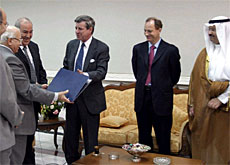
A new Iraqi government was sworn in on Monday after the United States formally handed over power two days earlier than expected.
But the head of the Swiss mission in Baghdad, Martin Aeschbacher, told swissinfo reconstruction would fail if security did not improve.
Although the interim government will have full sovereignty, the US will continue to be responsible for security.
The Swiss foreign minister, Micheline Calmy-Rey, has said her country is likely to play a “more dynamic role” in Iraq following the handover of power.
Switzerland has maintained a small liaison office in the Iraqi capital since May 2003.
Aeschbacher said he expected Switzerland would boost its humanitarian and development activities in Iraq, but warned that this would not happen until there was a marked improvement in security.
swissinfo: What are the consequences of the handover of power for Switzerland’s official presence in Iraq?
Martin Aeschbacher: Until now we have mostly been in contact with the Iraqi authorities and Iraqi civil society groups, and this will not change. What will change is the political make-up of Iraq, and this will have an influence on our policies and on our presence here. I do not expect, though, that the nature of my job will change overnight.
swissinfo: The Swiss government has until now focused mainly on humanitarian assistance in Iraq. But according to Micheline Calmy-Rey, Switzerland will in future play “a more dynamic role” in the country. Is this realistic?
M.A.: It all depends on the security situation. There are certain things that you can still do when things are difficult – in both the humanitarian and political spheres.
In the future we can perhaps be a bit more proactive, as far as the security situation allows, and maybe even move a bit further towards helping with reconstruction. But this will be a gradual process.
swissinfo: Does “a more dynamic role” mean that Switzerland will become involved in the process of shaping the political future of Iraq?
M.A.: Switzerland can certainly do something in the field of human rights, for example. The Iraqi minister in charge of human rights has already expressed an interest in this. It remains to be seen over the year ahead whether we can also get involved in the drawing up of an Iraqi constitution.
swissinfo: Is Switzerland’s humanitarian work in Iraq being hindered by the precarious security situation?
M.A.: Our work is complicated by the fact that field trips beyond Baghdad are not possible at the moment. That said, we can still work on projects in cooperation with our Iraqi partners.
swissinfo: Switzerland’s presence in Iraq is expensive. Is it really worth the effort?
M.A.: That is a typically Swiss, small-minded way of assessing the current situation. We would set a precedent for others if we decided to close our mission down for financial reasons.
We have a certain responsibility to the host country and other nations. It is clear to me that our mission costs a lot. But we can be active in many ways and do things that can be useful in the future.
swissinfo: Have you been in contact with the new Iraqi government?
M.A.: I have met some members of the government, but it will take some time before I can ask for a meeting with the new representatives who have only just been appointed.
swissinfo: Are you confident that Iraqis will achieve full sovereignty?
M.A.: It’s clear that sovereignty will still be limited in areas such as security. The government needs foreign troops. And obviously Iraq is to some extent dependent on its paymaster. The $18 billion (SFr22.4 billion) that the US is providing is very important for Iraq.
swissinfo: There are only a few Swiss investors willing to do business in Iraq at this stage. How might this change under the new government?
M.A.: A lot depends on the security situation. Swiss businesses will be ready to invest and the economy will pick up once there is an improvement to security.
The new government has made security its top priority, but the financial means at its disposal are limited. It remains to be seen if the authorities can provide the right conditions [to attract investors], but I certainly hope they can.
swissinfo: What is the mood amongst the Iraqi population? Do people believe in a better future?
M.A.: There has been a climate of pessimism and mistrust in Iraq, and it hit a low point with all the unrest in the city of Fallujah in April.
The mood has changed since the appointment of the new government. Though there is cautious optimism, people know that it will not be easy.
swissinfo: On a personal note, how do you cope with the feeling of insecurity in Iraq?
M.A.: People seem to find it hard to believe, but I feel remarkably well and not cut off at all. Bomb attacks are my only fear, because there is nothing you can do to protect yourself. When you drive through the city you never know where the next bomb is going to go off.
swissinfo-interview: Gaby Ochsenbein
The United States handed over power to an interim Iraqi government on June 28.
The new government has 36 ministers.
Free elections are planned for the beginning of 2005.
Martin Aeschbacher, a diplomat and Islamic specialist, has been head of the Swiss liaison office in Baghdad since May 2003.
Switzerland’s role in Iraq has until now been confined to humanitarian duties, but could be extended in the future.
The Swiss have supplied humanitarian aid worth SFr8.3 million since the beginning of the year.

In compliance with the JTI standards
More: SWI swissinfo.ch certified by the Journalism Trust Initiative
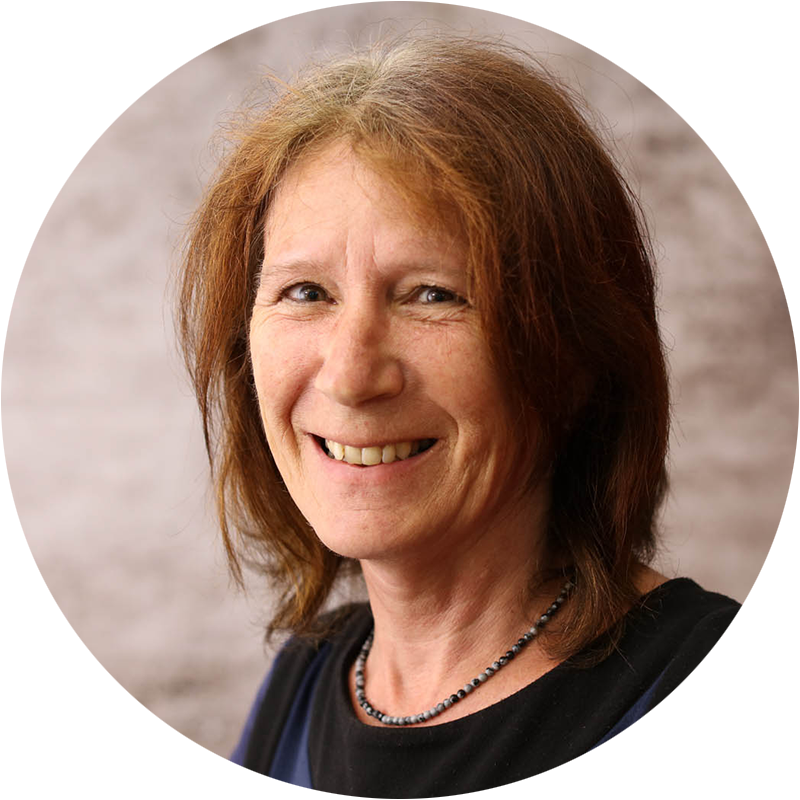
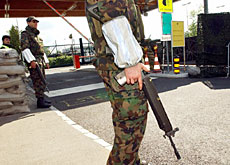
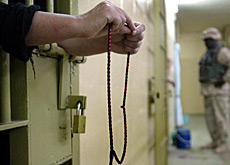
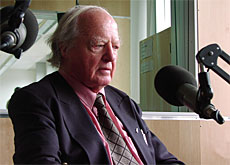
You can find an overview of ongoing debates with our journalists here . Please join us!
If you want to start a conversation about a topic raised in this article or want to report factual errors, email us at english@swissinfo.ch.